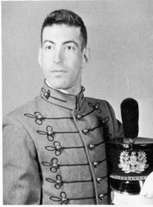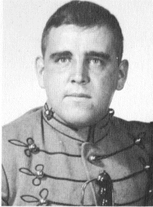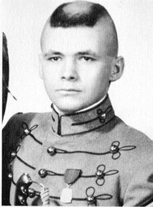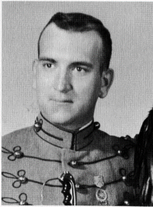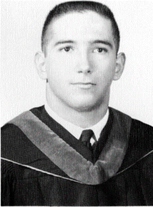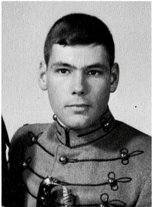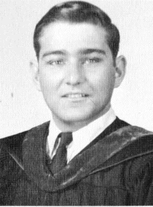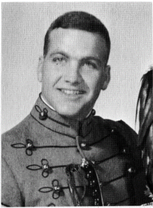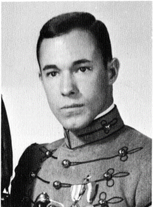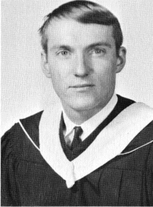|
James A. Sinclair
This week, 50 years ago, I finished my summer session and officialy graduated.I have written about this episode in "The Mass, Damper and Spring".
The End Game
I was able to squeeze a four-year engineering program into five years, but only with the assistance of three summer sessions, massive luck, divine assistance, my parents paying the bills, and a little help from the faculty! Sometime in my last year, I was given a small office in the soils lab. This was my own space! Professor Mann gave me the keys when he discovered that I had no place to study except the library. The small room contained a desk and a blackboard. The door locked and I could store all my stuff in the office. Morning, noon and night I was in my office studying. The night watchman would check in to say hello. For me, it was an immense feeling of possession of the future when I got this office. All I needed was a secretary and a coffee pot
The feeling of doom that I intuited when the new engineering program was rolled out in 1962 did not lift until May of 1966. I know the time and place. It is embedded in my memory. It was one of those events that Maslow would describe as a “peak experience”, a happening that becomes a linchpin in our life. This took place on a sunny spring Saturday morning in Kirkbride Hall, the new science and engineering building, outside of the Dean’s conference room. The engineering faculty was holding the grading session for the spring semester. I felt somewhat optimistic about my work on the finals, but at PMC, life was always subject to fate. It was possible that this could go either way.
We were just standing around waiting for the jury to deliver its verdict. The conversational noise in the conference room elevated, there was a shuffling of chairs and the door opened. Several professors walked out, but said nothing. Then Dr. Murphy came out, saw me and came over, smiled and shook my hand. He said, “Jim, congratulations-you did it! You are going to be a fine engineer!” He then gave me a very enthusiastic hug and told me that he really loved our engineering project and our presentation.
WOW!!!!!
I was in a state of shock; the end of this five-year long educational process was really in sight. As I walked away from Kirkbride Hall, across what was once the soccer practice field, I started crying. The tears just flowed uncontrollably from my eyes, from the center of my very being. It was a cathartic release of epic proportions. I wouldn’t describe this as “tears of joy,” but when the episode was over, the world had changed, again. All at once, I could hear the birds chirping, feel the sun warming me, feel the breeze gently wafting across the football field and smell the grass that was being cut by the workers. I was alive, reborn and gifted with a future I could invent. It was as if time in my professional life would now be measured from this point.
Surviving Dr. Murphy’s science-engineering program was the hardest thing that I ever did. Every academic, professional or political task that came after would be easy compared to this. But of course nothing is really easy, including taking and passing the two remaining required courses, Energetics I and Reinforced Concrete.
I would love to be able to have a talk with Art Murphy about the systems approach in light of my experience over the last fifty years, but unfortunately he died in July of 2007 at 78 years of the age. That is why I am doing this paper.
____________________
Energetics
“ Energetics” is all about the study of work, or more precisely how energy is converted to work. This is an engineering topic that is both simple, conceptually and complex from a mathematical standpoint.
In the fall of 1965, I took Energetics (ENGR 410) given by Dr. Giuseppe O. Calabrese PE, Doctor in Engineering, Polytechnic Institute of Turin, Italy. He came from the Argonne National laboratory and had been a professor of electrical engineering at New York University and a colleague of Enrico Fermi. Energetics along with the senior engineering project was the capstone in the new systems education at PMC.
Engr. 410 ENERGETICS--Formulation of the general principles of electro-mechanical and thermo-mechanical energy conversion with particular attention on the development of general methods of analysis. Energy storage and transfer in coupled circuits with air and iron cores energy conversion in rotating machines. Energy conversion in internal combustion, steam and flow devices. The basic concepts are shown to apply to direct energy conversion devices and one such device will be studied. Prerequisites: Engr. 311, 314 and 315.
In retrospect, I understood the basic concepts of the subject, the interrelationships between the variables, and what Energetics was all about. I just couldn’t understand Dr. Calabrese. We had a failure to communicate. He was a great man, an outstanding scholar but his words did not resonate in my little gray cells. My most memorable mental picture of him in the classroom was his mangling of the metaphor “the proof was in the pudding.”
I understood the math, what it was and how to do it, but it was not alive for me. As we developed and discovered new concepts by mathematical derivations, my mind shut down and went somewhere else. I sat in the front row and listened, but didn’t hear. I copied the equations into my notebook where they would be stored, but never used. The information on the black board and sounds in the classroom were picked up by my senses processed by some compartment in my brain and transferred to paper. The output was organized gibberish – some modern version of scientific cuneiform, a foreign language that could not be translated into English.
The exams, which weren't that hard, were not really doable in the time given. In this lifetime, I have to sleep on complex problems. Problems that require thought cannot be solved while I am staring at a blank sheet of paper with a timer ticking down.
And I really didn’t have a clique or study group to bounce concepts off. Alone, I failed.
You really don’t get many second chances in life, but I did get a second chance to do Energetics.
Dr. Murphy arranged for me to go through the graduation exercises and take Energetics and Reinforced Concrete during the summer as independent study. I was prepared to camp out in Chester for the summer. I had rescheduled my start at DuPont for early September.
For Reinforced Concrete, I met with Dr. Mann, who outlined the course areas and asked me to review current textbooks and select one. After I did, that he indicated what chapters I should read and what problems I should solve. He also gave me a design project to complete, a concrete school building. I could return to Buffalo and come back in six weeks. It would appear that I became an expert. At DuPont, I would lecture some of the area engineers about reinforced concrete, the reinforcing bar placement, the curing time for concrete and other mysteries.
For Energetics, I met Dr. Calabrese in the hospital. I had no idea that that he was in fact dying. I had given a great amount of thought to how this independent study might work out and I had sort of envisioned it as a mentor-student relationship—where I would on an independent basis study, complete homework assignments and speak with him about the work. I wanted a dialog on the subject but was awed by him and somewhat afraid. I had already failed this course one time.
He started the conversation by saying, “Art tells me you have graduated, and I am not sure why we are doing this?" I told him that I had only gone through the motions. I wouldn’t graduate and get a diploma until I successfully completed his course and I would do whatever I could to complete the course.
He then smiled at me, a big wonderful warm smile and said well "let’s get you through this course and this program and this school and let you start on your life." We then sat down and he asked questions about the engineering program, my experience in his Energetics course, my family and my new job at DuPont. He told me about his work at Argonne National Laboratory and then we talked about energetics, computers and engineering. He then gave me a huge black binder with Energetics course notes and some completed questions. He told me to come back in four weeks for a mid term review. I did come back to Chester, but the meeting was canceled because of some health issue he was having. Dr. Mann told me he thought that he was dying.
In August, after a summer of pondering Energetics and working in the collision shop, I met for what I expected was the final exam. It turned out to be an oral exam, which started with, “don’t worry about it, you have already graduated”. “We shall have some fun talking about Energetics”. And we did. He was enjoying himself. He was on. It was a wonderful conversation about what I had learned about Energetics and what I didn't understand. We moved on to talk about the application of this work to energy supply, energy policy, and the state of research, education, careers and colleagues.
For a man so close to death, he was filled with life. I don’t think he returned in the fall and he was dead by November. I would like to think that I was his last and best student. And even if this is not true, I would like to think it.
|

![]()


